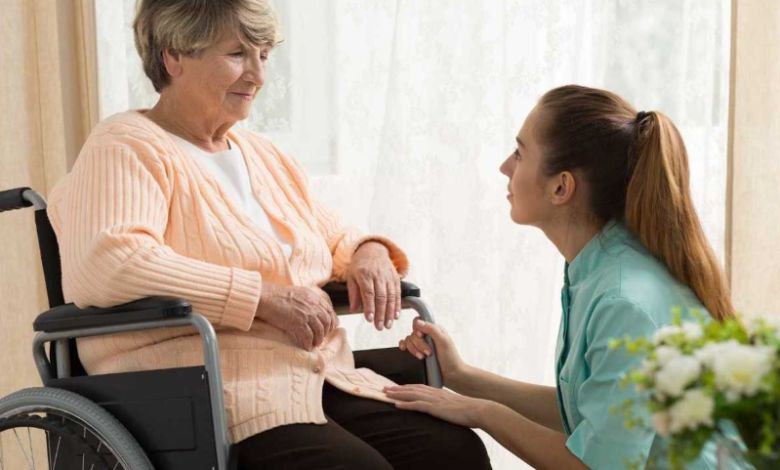The Essential Role of a Caregiver for the Elderly

1. Understanding the Importance of Elderly Caregiving
As the global population continues to age, the demand for dedicated caregivers for the elderly has never been more crucial. Aging often brings physical limitations, cognitive decline, and emotional changes that make independent living challenging. A caregiver’s role extends beyond basic assistance; it encompasses emotional support, companionship, and ensuring the elderly live with dignity. Caregivers help seniors manage daily routines, maintain personal hygiene, take prescribed medications, and engage in activities that stimulate mental health. The essence of caregiving lies in empathy—understanding the unique struggles of aging and offering a comforting presence that ensures the senior’s quality of life is maintained. Families often rely on caregivers not only to meet medical or physical needs but also to nurture a sense of belonging and purpose in their loved ones’ lives. Whether part-time or full-time, in-home or institutional, caregivers are indispensable in bridging the gap between independence and support, helping seniors navigate the complexities of aging with grace.
2. Responsibilities and Duties of a Caregiver
The role of a caregiver for the elderly is multifaceted, requiring patience, attention, and versatility. Daily tasks include helping seniors with activities of daily living (ADLs) such as bathing, dressing, grooming, and mobility. Beyond these essentials, caregivers also prepare nutritious meals tailored to specific dietary needs, assist with medication management, and ensure regular medical checkups are attended. Emotional support is another fundamental duty—many elderly individuals face loneliness, especially when separated from family or friends. Through conversation, shared activities, and companionship, caregivers combat feelings of isolation and depression. Additionally, caregivers often manage household chores, monitor safety within the home, and encourage physical exercise suitable for the elder’s health condition. Their responsibilities may also extend to coordinating healthcare appointments, updating family members on health changes, and maintaining detailed records of daily routines. In essence, a caregiver’s job is to provide holistic support—balancing physical assistance, mental stimulation, and emotional reassurance to foster a nurturing environment that promotes wellbeing and stability.
3. Emotional and Psychological Benefits of Caregiving
Beyond physical assistance, one of the most profound impacts of a caregiver’s presence is on the emotional and psychological health of the elderly. Many seniors struggle with loneliness, anxiety, or depression, especially after retirement or the loss of a spouse. A caregiver serves as both a companion and emotional anchor, offering empathy and genuine human connection. This consistent interaction reduces feelings of abandonment and enhances the senior’s sense of purpose. Activities such as storytelling, memory games, walks, and shared meals create moments of joy and mental engagement that can slow cognitive decline. Studies show that seniors receiving regular social interaction and compassionate care experience improved mood, reduced stress, and even enhanced cognitive function. Caregivers also play a pivotal role in fostering self-esteem—encouraging independence where possible, acknowledging achievements, and promoting positive self-image. The psychological stability that caregivers offer can significantly improve overall health outcomes, demonstrating that caregiving is as much about nurturing the soul as it is about supporting the body.
4. The Qualities of an Exceptional Caregiver
Being a caregiver for the elderly requires more than skill—it demands character, compassion, and resilience. The best caregivers embody patience, understanding that tasks may take longer and communication may require repetition. Empathy allows them to connect deeply, recognizing the emotions and challenges the elderly face daily. Reliability and attentiveness ensure that seniors feel secure, knowing their caregiver can be trusted to meet their needs consistently. Adaptability is equally vital; each day brings new challenges, from changing health conditions to evolving emotional states. Strong communication skills help caregivers coordinate with healthcare professionals and families effectively. Integrity, respect, and discretion form the foundation of the relationship, as caregivers often handle sensitive health information and personal matters. Furthermore, ongoing education in elderly care practices, such as first aid, dementia support, and nutrition, enhances their effectiveness. Ultimately, an exceptional caregiver combines professional competence with heartfelt dedication, creating an environment where seniors feel valued, safe, and truly cared for.
5. The Future of Elderly Care and the Value of Compassion
As life expectancy increases and family structures evolve, professional caregiving is becoming a cornerstone of modern society. The future of elderly care will likely see greater integration of technology—remote health monitoring, AI-driven assistance, and digital companionship tools—but human compassion will remain irreplaceable. While innovations can enhance efficiency, the warmth of a caregiver’s smile, the reassurance of a gentle touch, and the patience of personal attention cannot be replicated by machines. Governments and communities must invest more in caregiver training, fair wages, and emotional support for those providing this critical service. Moreover, families should view caregiving not merely as a job but as an act of love and respect toward the elderly. Recognizing caregivers as essential partners in healthcare underscores their pivotal role in promoting dignity and independence among seniors. In a rapidly aging world, compassionate caregiving will continue to stand as a testament to humanity’s deepest values—empathy, kindness, and the commitment to care for those who once cared for us.





